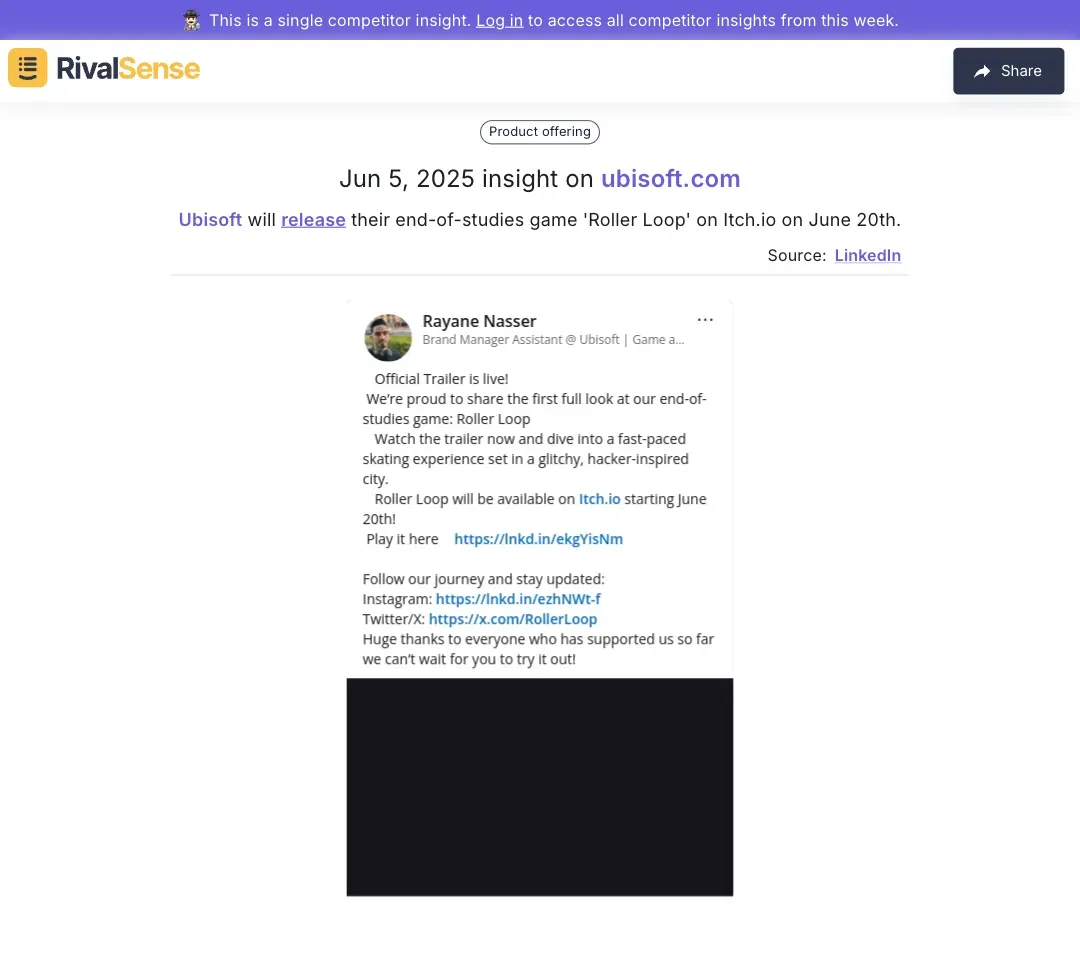Unlock Hidden Opportunities: Mastering Competitor White Space Analysis
In today's hyper-competitive business landscape, merely tracking competitors' current activities isn't enough. True strategic advantage comes from anticipating uncharted territories where your rivals aren't playing. Competitor white space analysis empowers businesses to identify these overlooked market gaps, creating pathways for innovation and uncontested growth. This guide breaks down practical methods to uncover these hidden opportunities, complete with real-world examples showing how timely intelligence drives decisive action.
Understanding Competitor White Space Analysis 🔍
Competitor white space analysis systematically examines areas where competitors underinvest or completely avoid engagement. These strategic voids—whether in product features, customer segments, or geographic markets—represent low-competition growth opportunities. The methodology spans multiple dimensions including pricing tiers, distribution channels, and technological capabilities.
For instance, if competitors focus exclusively on enterprise clients, the SMB segment might become your lucrative white space. Similarly, regional gaps or underserved product functionalities often signal untapped potential waiting for strategic exploitation.
Why White Space Analysis Matters 💡
Identifying market whitespaces delivers concrete advantages:
- Discover uncontested revenue streams by targeting overlooked customer needs
- Reduce competitive friction by avoiding saturated markets
- Optimize resource allocation through data-driven prioritization
- Enhance customer relevance by addressing unmet demands
Businesses that consistently analyze these gaps outmaneuver rivals through proactive rather than reactive strategies.
How to Conduct White Space Analysis: 5 Actionable Steps 🚀
Executing effective analysis requires structured methodology:
-
Map key competitors
List direct/indirect players and categorize their core focus areas -
Gather multidimensional intelligence
Collect data on:- Product portfolios
- Pricing structures
- Marketing channels
- Customer reviews
- Geographic coverage
-
Identify strategic gaps
Spot patterns where competitors show consistent avoidance or weakness -
Evaluate opportunity viability
Assess market size, your capabilities, and implementation costs using this framework:Factor Evaluation Questions Demand Is there proven customer need? Fit Does it align with our strengths? ROI Can we achieve target margins? -
Develop exploitation roadmap
Prioritize opportunities and create phased implementation plans
Real-World White Space Insights from RivalSense 🌐
Timely competitor intelligence transforms theoretical analysis into actionable strategy. These examples show how specific insights reveal concrete opportunities:

Example: Figma integrated with GitHub Copilot to auto-generate UI components from design tokens.
White Space Opportunity: This partnership insight reveals competitors' focus on developer experience automation. Companies in adjacent spaces could explore integrations with emerging AI tools targeting underserved creative-technical workflows.

Example: Ubisoft releasing 'Roller Loop' on Itch.io on June 20th.
White Space Opportunity: Distribution channel insights highlight experimentation with niche platforms. Game developers might identify opportunities in alternative storefronts competitors ignore.

Example: Sony launching Sword of the Sea on PS5 via PlayStation Plus on August 19.
White Space Opportunity: Product launch timing reveals content gaps in subscription catalogs. Competitors could counter with targeted indie game acquisitions for their own services.
How RivalSense Automates White Space Discovery ⚡
Manual analysis consumes hundreds of hours annually. RivalSense transforms this process through:
✅ Comprehensive Tracking
Monitor 80+ sources for product updates, pricing changes, partnerships, and regulatory shifts
✅ Automated Gap Detection
AI identifies patterns in competitor avoidance areas across dimensions
✅ Actionable Reporting
Receive curated weekly digests highlighting whitespace opportunities
✅ Strategic Benchmarking
Compare your market positioning against competitor coverage maps
✅ Real-Time Alerts
Get instant notifications on competitor moves affecting whitespace viability
Conclusion: Turn Market Gaps into Growth Engines
Competitor white space analysis shifts strategic planning from reactive to proactive by illuminating uncontested market territories. Consistent identification of these opportunities requires systematic competitor monitoring across multiple dimensions.
Ready to uncover your next growth opportunity?
Try RivalSense for free today and get your first competitor intelligence report to start mapping your whitespace advantage!
📚 Read more
👉 How to Analyze Competitor Feature Updates: IPRoyal's Proxy Checker Case Study
👉 Decoding Competitor Partnerships: Lessons from Adonis's Healthcare Moves
👉 Decoding Competitor Moves: Rayobyte's Strategic Shift to Marketing
👉 Mastering Competitor Data Strategy Analysis: A Practical Guide for Business Leaders
👉 Top 5 Competitor Review Analysis Mistakes in Online Education
